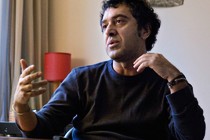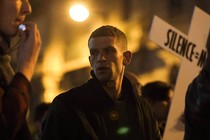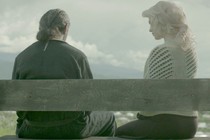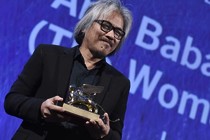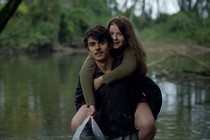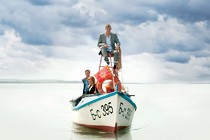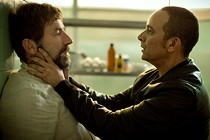Big Big World: Running from a cruel society
- VENICE 2016: Turkish director Reha Erdem uses the spectacle of nature to tell the story of two orphan teenagers
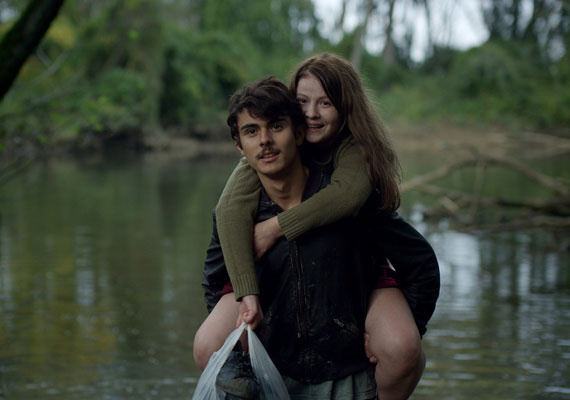
Competing in the Orizzonti sidebar of the Venice International Film Festival, the Turkish drama Big Big World [+see also:
trailer
interview: Reha Erdem
film profile] shows two teenagers running away from the titular “big big world”. With two very expressive young stars, Berke Karaer and Ecem Uzun, director Reha Erdem explores a fantastic realm with a few touches of magical realism.
The story starts off in the present, in an unnamed Turkish city. We immediately see Ali (Karaer, whose little moustache brings to mind a very young and impossibly shy Errol Flynn) trying to reach his sister, Zuhal (Uzun). She lives with a family, and soon the audience understands that the two siblings are orphans and that Zuhal is expected to become the second wife of the man who adopted her, despite her very young age. As he is not allowed to see Zuhal, Ali will have to go to extremes in order to be reunited with his sister. Fleeing the consequences of their escape, the two teenagers hide in the woods, the dangers of which are preferable to the cruelty of man.
Big Big World has a premise that brings to mind another recent Turkish production exploring an unfortunate stratum of society: Emine Emel Balcı's Until I Lose My Breath [+see also:
film review
trailer
film profile] was screened last year in the Berlinale Forum, showing the trials and tribulations of Serap, a teenager who fights, in spite of dire circumstances, for an ordinary, comfortable life. Reha Erdem starts from the same spot, but he soon distances himself from the ultra-urban story of Serap: Ali and Zuhal will fight for their relationship far from civilisation, surrounded by the cries of animals and birdsong.
Erdem makes the most of Ali and Zuhal’s simple story by creating an attractive contrast between the city and its people, who prey on the powerless, and the welcoming indifference of nature. The director fills the screen with ponds, trees and beasts, transforming the two siblings into fairy tale-inspired characters searching for their place in the world. But despite the enchanted forest and its charms, the titular big, big world still lurks at its outskirts, and temptation may jeopardise Ali and Zuhal’s future.
Aided by terrific performances from its young stars, Big Big World succeeds in creating a space full of potential, where everyone can be whomever he or she wants. In one of the film’s most endearing sequences, Ali becomes Kum-Kum and Zuhal becomes Mi-Mi in an existential rebirth that annuls the past and forges a path to a better future. Without re-constructing reality as much as, for example, Yorgos Lanthimos' Dogtooth [+see also:
film review
trailer
interview: Yorgos Lanthimos
film profile], Erdem’s feature stresses that much of what one thinks and does is mere convention.
Although it doesn’t dwell too much on the topic, Big Big World doesn’t choose to ignore the social side of its story: Ali and Zuhal may arrive in the woods as a consequence of a violent act, but society preys on them from the very beginning. Without nurturing from careful parents, orphans are damaged goods in the big, big world, so they have to change the rules and re-create it in order to feel safe.
Did you enjoy reading this article? Please subscribe to our newsletter to receive more stories like this directly in your inbox.














